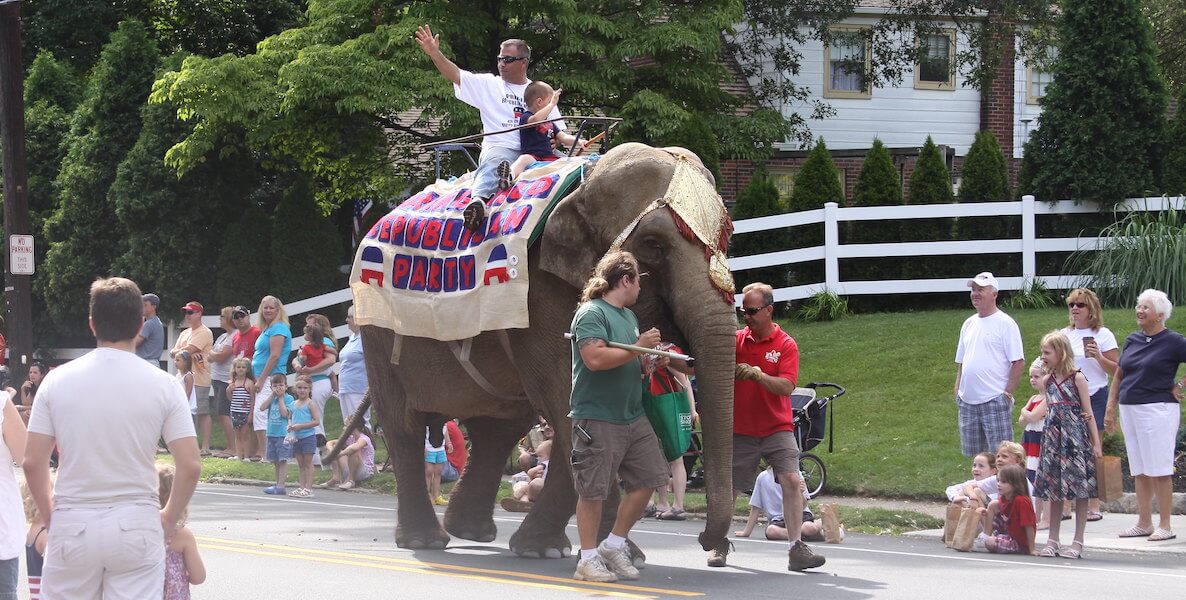For Pennsylvania Republicans, the last decade has been the best of times and the worst of times — mostly the latter.
For nearly a decade, the GOP has nodded approvingly as Western Pennsylvania’s unionized steamfitters have trended Republican and increasingly joined the Republican Party. Their jobs and personal values draw them to the GOP.
What Republicans have failed to adapt to, however, is the trend of suburban Republican C-suite executives — perhaps working for a major pharma company, maybe subscribing to the New York Times, and thriving within a corporate culture that encourages the listing of pronouns in personal signatures — voting for Democrats and increasingly becoming Democrats. The GOP has either missed this transformation entirely or been unable to understand it.
Pennsylvania’s changing political map
For most of my voting life, the Republican map assumed that GOP statewide candidates would lose Philadelphia by a big margin, but that they would even out that deficit with victories in the four suburban counties.
Then, the battleground shifted: The GOP hoped to win central Pennsylvania by more than it lost blue-collar, working-class Western Pennsylvania. Starting around 2000, though, the then-Republican-heavy suburbs of Philadelphia began changing from dark red to light red, and finally to blue. On the opposite side of the state, the mirror image was happening. Those blue-collar, working-class counties were moving, too — from light blue to red.
Comparing my home Chester County in suburban Philadelphia with Westmoreland County in the western part of the state shows what has occurred. It is a shift that mirrors what’s happening along the U.S. East Coast and in the Rust Belt.
The best way to prove ourselves to skeptical voters is to reach out: Listen to their suggestions and their dreams, ask for their votes, and invite them to be active members of the GOP. Even better, invite them to run for office, too.
In 2010, Chester’s congressmen were Republican, and Republicans accounted for three of four state senators, seven of eight state representatives, and Republicans held every courthouse office; but for the statutorily-required “Minority (party) Commissioner.” Today, Chester is represented by Democrats: in Congress, four of four state senators, and seven of nine state representatives; and Democrats hold every courthouse office, but for the “Minority Commissioner.”
Westmoreland County tells the opposite story. Except for the office of Minority Commissioner, most of its elected officials — from Congress to the courthouse — shifted from Democrat to Republican.
In 2000, George W. Bush won Chester by 10 points; in 2004, he prevailed by only 4.5 points. Last year, in the U.S. Senate race, Democrat John Fetterman carried the county by 17 points. In 2000 in Westmoreland, Bush won by 5; in 2004, he won by 13. Mehmet Oz beat Fetterman in Westmoreland by more than 19 points.
Republicans are gaining ground in shrinking counties, while falling behind in growing suburban counties.
Chester is Pennsylvania’s seventh-largest county; Westmoreland is 11th. On the surface, it seems like an almost fair trade, but appearances are deceiving. Chester has almost 200,000 more people than Westmoreland. Over the last decade, Westmoreland County has lost nearly 4 percent of its population, while Chester County has grown by over 9 percent.
Republicans are gaining ground in shrinking counties, while falling behind in growing suburban counties. Increasing their domination of counties like Westmoreland will not get the GOP to 51 percent. Victory can only come by making inroads in the growing suburban communities around Philadelphia, and in the nearby Lehigh Valley and in the increasingly suburban areas of the Lancaster to Harrisburg to York corridor.
Embracing voters from international backgrounds
Like many suburban communities, Chester County has a growing number of higher-income White voters with college and graduate degrees. They have become core constituencies for Democrats.
There is hope for Republicans in the suburbs, however: It can be found in the fastest-growing segments of the suburban population — ethnic minorities, especially Indian, Hispanic, and Chinese Americans. Between 2000 and today, Chester’s Hispanic population grew from 3.8 percent to almost 8 percent. The Asian population grew from 2 percent to almost 7 percent. Combined, nearly 15 percent of the county’s population is Hispanic and Asian, and that portion continues to grow.
While increasing GOP support among Hispanic voters has been well-documented, Republicans have yet to expand their support in the Asian community. However, pre-election and exit polling has consistently shown that Asian Americans rank the economy and education among their top issues. Here is an opportunity for Republicans. The issue priorities of these communities align with those of the GOP.
Many GOP candidates haven’t campaigned enough in these communities, and fair or not, a perception exists that Republicans don’t welcome them. We Republicans want to grow our party, not just to win but to be a true governing, representative party. The best way to prove ourselves to skeptical voters is to reach out: Listen to their suggestions and their dreams, ask for their votes, and invite them to be active members of the GOP. Even better, invite them to run for office, too.
To win statewide, Pennsylvania Republicans can’t rely on winning larger and larger super-majorities in shrinking rural counties. We have to find more voters in the growing counties that are suburban or becoming suburban. The best avenue for growth is among the ethnic communities that are growing and whose priorities align with those of our party.
This approach is not only the best path forward mathematically; it’s the right thing to do. Our party believes in fostering economic opportunity and keeping the American Dream alive for everyone. What better way to make this a reality than to reach out to our newest Americans — people who risked everything to come here? This is Republicans’ best path to success.
Guy Ciarrocchi is a writer for RealClear Pennsylvania and Broad + Liberty, a policy and strategic communications advisor, and a softball coach in his 24th season. @GuyCiarrocchi
![]()
MORE PERSPECTIVES FROM BROAD + LIBERTY CONTRIBUTORS




